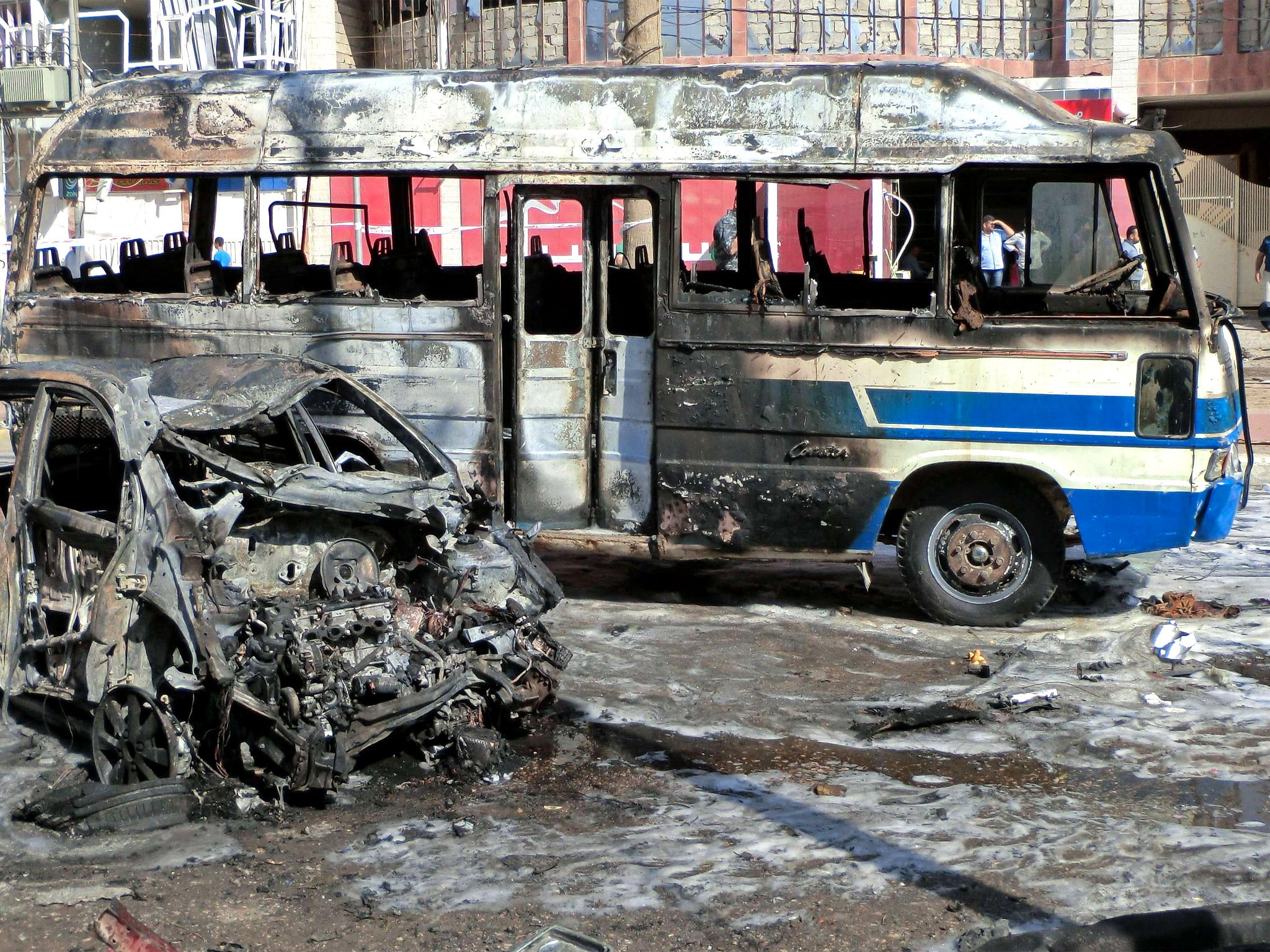Exclusive: Iraq still using bogus bomb detectors – and thousands pay the price
More than 4,500 people have been killed since the conviction of UK businessman, James McCormick, in April

Bogus bomb detectors are still being used in Iraq five months after a British businessman who supplied the devices was found guilty of fraud.
More than 4,500 people are estimated to have been killed in Iraq – 979 of them in September alone – since James McCormick, a former policeman, was convicted at the Old Bailey in April. His trial heard that the devices he was selling, called ADE-651, were based on novelty golf-ball finders and had no scientific means of detecting explosives.
The Iraqi government promised after the trial that the fake detectors would be phased out. But they were still in use at checkpoints two days ago when 55 people were killed by bombs packed into cars in Baghdad. The responsibility for the attacks was claimed by an al-Qa’ida-linked group, which began its current campaign of violence around five months ago.
The sale of the devices to Iraq was alleged to have been aided by the payment of huge bribes to local officials. McCormick is said to have made a total of $75m (£46.2m) from the Iraqi government, charging $40,000 for each unit, which cost $20 to produce.
Major General Jihad al-Jabiri, the head of the Interior Ministry’s directorate for combat explosives, and two other officials were jailed for corruption over the deal and 15 others were alleged to have been involved.
After McCormick was handed a 10-year sentence, Iraq’s deputy Interior Minister Adnan Asadi announced that the detectors would be replaced. He did not stipulate how and when, but it was later confirmed by the Prime Minister, Nouri al-Maliki, that sniffer dogs would be brought in to search for explosive devices.
So far only two provinces in the south, Dhi Qar and Wasit – neither of which is on the front line of the recent violence – have invested in canine units. Around 20 dogs were bought to guard the capital’s Green Zone, but the country’s parliamentary security committee discovered they had not actually been trained to detect explosives. The “dog option” has also led to allegations of corruption. Even before the detector scandal, MPs claimed in July 2011 that there were 27 cases of financial malpractice in the purchase of dogs for security work.
Some Iraqi officials complain that contradictory statements from the highest echelons of government had undermined efforts to ban the fake devices. In May this year, Mr Maliki was still insisting that some of the ADE 651s worked. He said: “The best devices in the world do not detect explosives more than 60 per cent of the time. Results we obtained indicate that these devices detect from 20 to 50 per cent. So, some of the devices were real and were detecting explosives.”
Before his conviction, General al-Jabiri had declared: “I know more about bombs than the Americans do, in fact I know more about bombs than anyone else in the world.”
Others, however, had stressed the dangers after McCormick’s sentence. Aqil al-Turaihi, inspector-general at the Interior Ministry, said: “I feel furious that this gang of Jim McCormick and the Iraqis working with him killed my people by creating false security and selling such a useless device.”
“There was corruption associated with this contract and we referred to this and submitted our report to the Minister of the Interior.”
Jawad al-Shihaili, an MP in the parliamentary integrity committee, claimed that the warnings had been ignored due to pressure from vested interests.
Monday’s bombing, a sectarian attack aimed at the Shia community, is said to have been carried out by the al-Qa’ida-affilitated Islamic State of Iraq. Another branch of the organisation, Islamic State of Iraq and Syria, is now the most extreme jihadi group among the rebels fighting across the border against Bashar al-Assad’s regime.
A journalist who has worked for The Independent in Iraq in the past, described his surprise at seeing the fake detectors each time he went back to Baghdad. Hassan Ali (not his full name, which has been withheld for security reasons) said from Baghdad: “Some of the junior ranks actually believe they work; more senior ones say it is better than nothing and acts as a deterrent... Some say that the first batch they got worked, the other ones that came later did not. Of course it’s all nonsense.”
One of the explosions on Monday took place in Baghdad’s Sadr City. Hakim Mohammed Jaffar, a schoolteacher, witnessed the blast. “I saw five dead bodies,” he said. “Some children had been hurt as well. There was a lot of blood, it was a very bad to see.
“I went through one checkpoint on the way in [to Sadr City] where they had the detectors just before the bombing. They look like wands and they are supposed to bend when they spot a bomb. But they are useless, everyone one knows that.”
Another of the blasts took place in the Kazhamiyah district. Hassan Abu Ridha, whose neighbour was injured, said: “My cousin is a policeman and he says they know these things do not work, but they have no orders to stop using them and they have been given nothing else. The British should have stopped them being sold in the first place, but now it is fault of our government that people are dying.”
Subscribe to Independent Premium to bookmark this article
Want to bookmark your favourite articles and stories to read or reference later? Start your Independent Premium subscription today.

Join our commenting forum
Join thought-provoking conversations, follow other Independent readers and see their replies